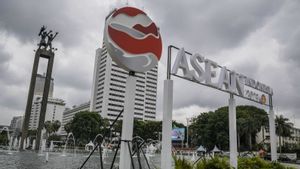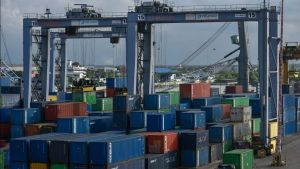JAKARTA - Deputy for Prevention and Monitoring of the Corruption Eradication Commission (KPK) Pahala Nainggolan said centralized information in the Regional Government Information System (SIPD) could be a powerful tool to prevent corruption in the regions.
"With SIPD, we can see what the regional budget is used for. We can see whether the budget is used for activities that are beneficial to the community or for certain personal or group interests," Pahala said in the 9th Merdeka Barat Forum (FMB9) dialogue entitled "One Information System Closes Corruption Room" in Jakarta, reported by ANTARA, Monday, August 28.
He said that in SIPD there were details of the allocation of the use of the budget. Through SIPD, the central government can see the use of regional budgets in detail, even to budget allocations for meetings, eating and drinking, and official trips.
Likewise with supervision at each stage, starting from planning, implementation, to budget accountability.
For example, said Pahala, this occurred in Cirebon Regency which has a Regional Revenue and Expenditure Budget (APBD) of IDR 7 trillion. However, of the total budget, only around Rp115 billion or 1.62 percent was included in the mapping of extreme poverty.
"With the evaluation function of the Ministry of Home Affairs, SIPD when it is fully operational, this (budget) of Rp. 115 billion cannot, too little. Moreover, Cirebon Regency is one of the poorest areas in West Java Province," he asserted.
Then when it was dissected again, explained Pahala, from 1.62 percent, it turned out that no one entered for social assistance activities (bansos). The local government actually included a budget for honorarium, office equipment shopping, and even eating and drinking meetings.
"Imagine this is not to directly inject to the poor, but instead to eat and drink meetings. In the future it certainly can't be like this," he said.
In addition, Pahala said the use of SIPD can also be used to increase community participation in budget oversight and regional programs. In fact, SIPD will not function optimally without critical participation from the community, non-governmental organizations, and the mass media.
For this reason, Pahala invites the public to periodically access SIPD data through the Ministry of Home Affairs website so that SIPD can be a means of monitoring and preventing corruption in the regions.
"The public is expected to be able to take advantage of SIPD to carry out analysis and provide input on regional budgets and programs," he added.
With SIPD, added Pahala, the public can more easily monitor the use of regional budgets and report irregularities. Therefore, SIPD is a powerful tool to prevent corruption in the regions.
اقرأ أيضا:
Just like the State Officials Wealth Report (LHKP), SIPD can be an important data source for investigating corruption cases.
"With SIPD, the mass media can see suspicious pattern of regional budget use," he explained.
Ahead of the launch of SIPD in September 2023, Pahala said that there are still challenges that must be faced, namely the reluctance of local governments to move away from applications that have been used so far.
Therefore, Pahala, who is also the Coordinator of the National Strategy for Corruption Prevention, appealed to local governments to integrate regional applications with SIPD. This integration process is carried out by the Ministry of Home Affairs.
"The local government only needs to provide the necessary data and information for the integration process. The local government can also add new features to the SIPD. However, these new features must be in accordance with regional needs," he said.
The English, Chinese, Japanese, Arabic, and French versions are automatically generated by the AI. So there may still be inaccuracies in translating, please always see Indonesian as our main language. (system supported by DigitalSiber.id)



















